 Brooks
Brooks
The missionaries came. They were Rwandese. They wanted to come to that far, far place because no one has preached there. – Morris
Morris – South Sudanese
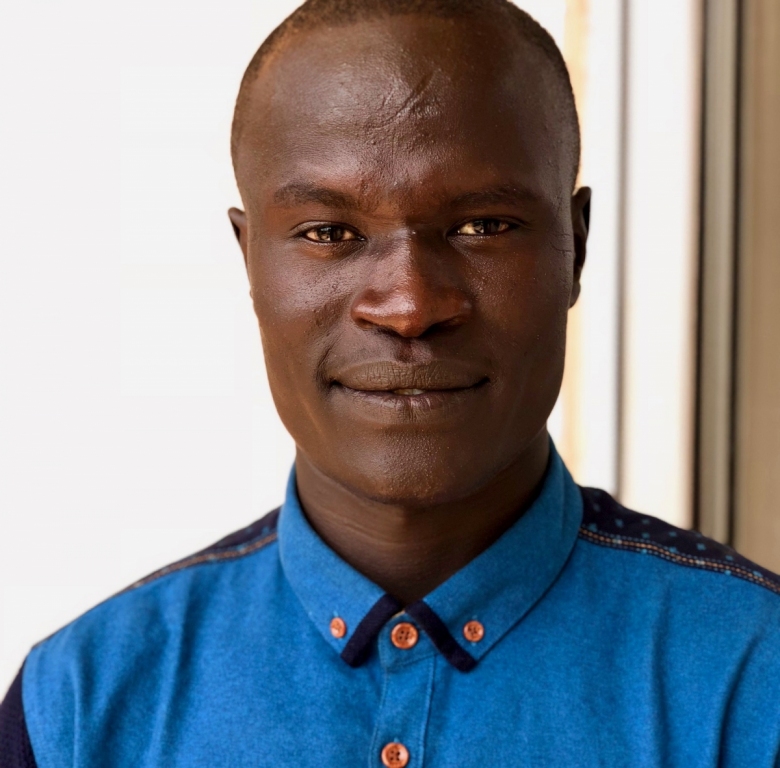
When we saw Justin, country leader of Rwanda, for disciple making movements, there was one thing on his mind: the unreached peoples groups living in the nation of South Sudan. God had placed in his heart a passion and a longing to share the love of God with people who have never heard in this harsh and difficult land.
Since we’ve seen him, he has taken a group of four others from Rwanda into South Sudan, which is very, very far. Last week we finally had the opportunity to talk to them face to face about their first experience in doing cross-cultural missions. They told us, “There are no churches, only grass houses. They have no toilets there. They think if you use a toilet you will never be able to have a child, so they go out to the bush. When we were there, we saw that every man carried a gun, a knife and a spear, and sometimes the traditional bow and arrow. They must have all these things because the other tribe will attack them and take their livestock. They also live close to the national park in Uganda where the wild animals live. They must protect themselves from lions and other animals which will attack them.”
Sylvester—one of the four missionaries—emphasized, “Justin trained us for a long time. He told us many times, our boss is Jesus Christ. Nothing will happen to us. We saw this happen. If there is another tribe coming to make an attack on the village, the witchdoctor starts beating the drums. Because of the grace of God on us, we made deep relationships and nothing happened to us. We were able to be sustained because of God’s grace.”
Sylvester holding a gift of a drinking cup made from a gourd given him by the South Sudanese
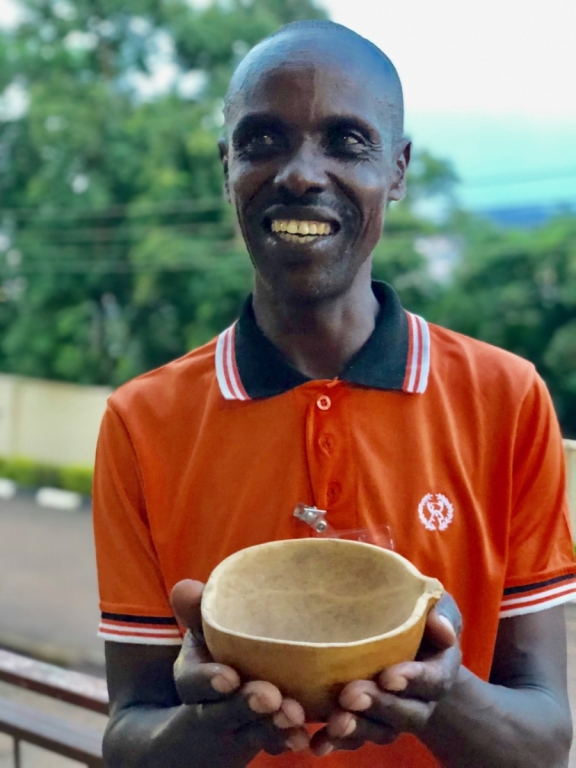
Jean Marie told us, “To see so many young and old men so lazy was hard. It puts all the burden on the wife (wives because they are polygamists) and daughters. They say the women work like a donkey and the men are very lazy only making and drinking alcohol. The men do not help their families. Family life is very hard; the wife takes care of everything. Disease and sickness is a real problem. So many people die. There is no hygiene and the people smell very bad and the water is polluted. They live with so very many challenges.”
Jean Marie
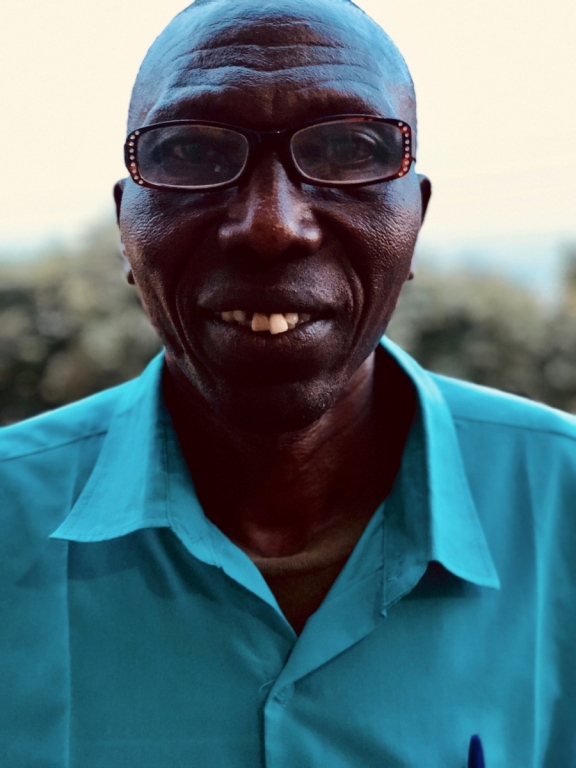
With a huge smile, Emmanuel shared about how hospitable the people were to the team “even though they thought we were very strange. They had some expectations of us (monetarily), but we showed them love in so many other ways. We played sports with them, like running and soccer, especially with the students. We got a soccer ball and divided into teams of boys and girls. They really like that so much. Even during the soccer matches, there was not even one person who was there and carrying a gun. We were with them for one month. Many times we sat around in a circle with the fire in the middle. They made benches from logs with sticks for legs and we sat there.”
Emmanuel
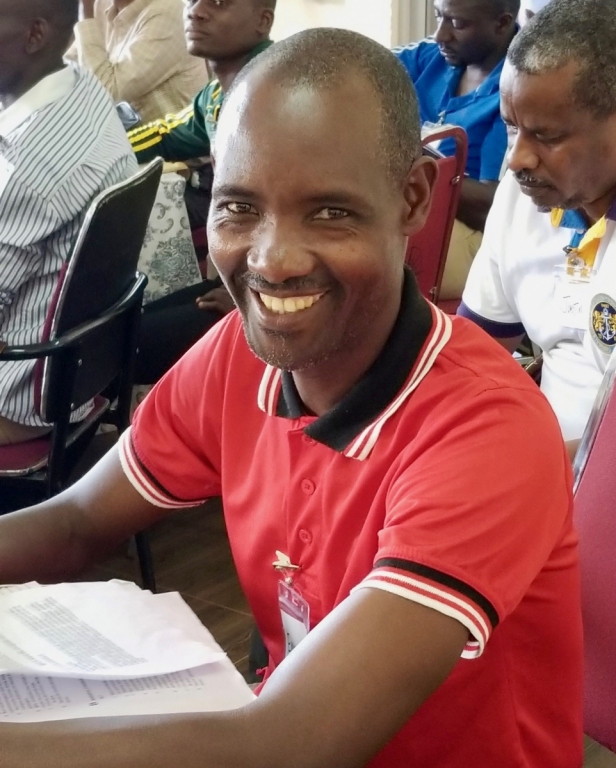
Food is scarce. Housing is temporary. Poverty is great. “The people cried so much when we left them. We want to go back soon and teach them how to build strong houses.”
It’s exciting to see Africans come to the realization that “missions is not just for the whites.” As each team member shared his experience, there was no doubt about the intense love they feel for these people and their desire to go back as soon as possible. While living amidst these people, they started five Discovery Bible Studies. Thirty-eight people have been baptized. Plans are being made to go back as soon as possible. Please pray with us for them and for a people who are desperate for relief from the immense burdens of just trying to survive.
Rwandese Team: Jean Marie, Emmanuel, Morris – South Sudanese reached, Sylvester, and translator Adam
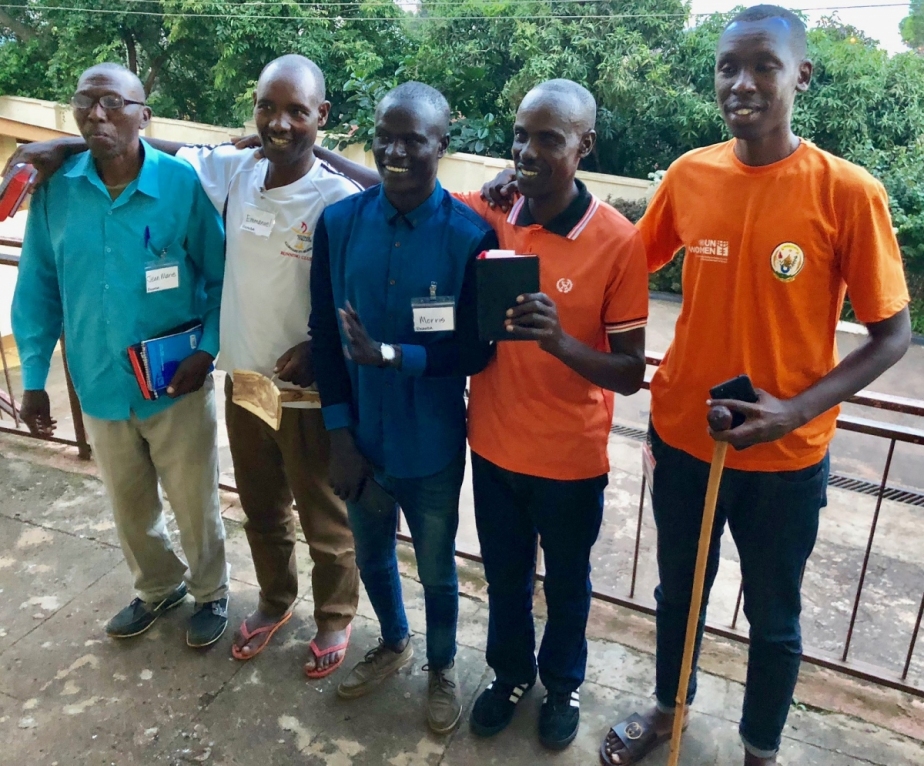
Photos from the field
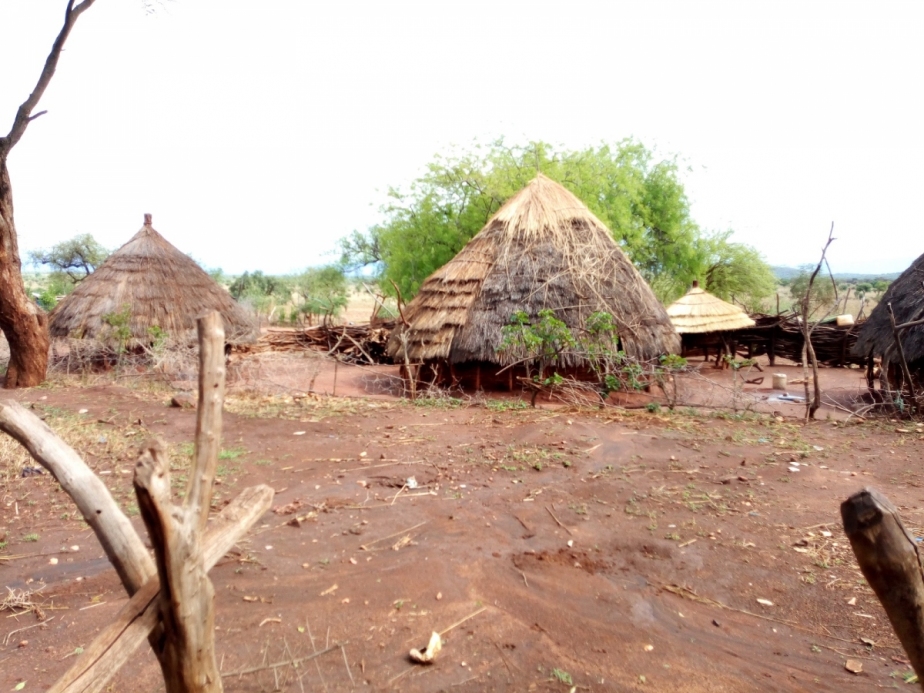
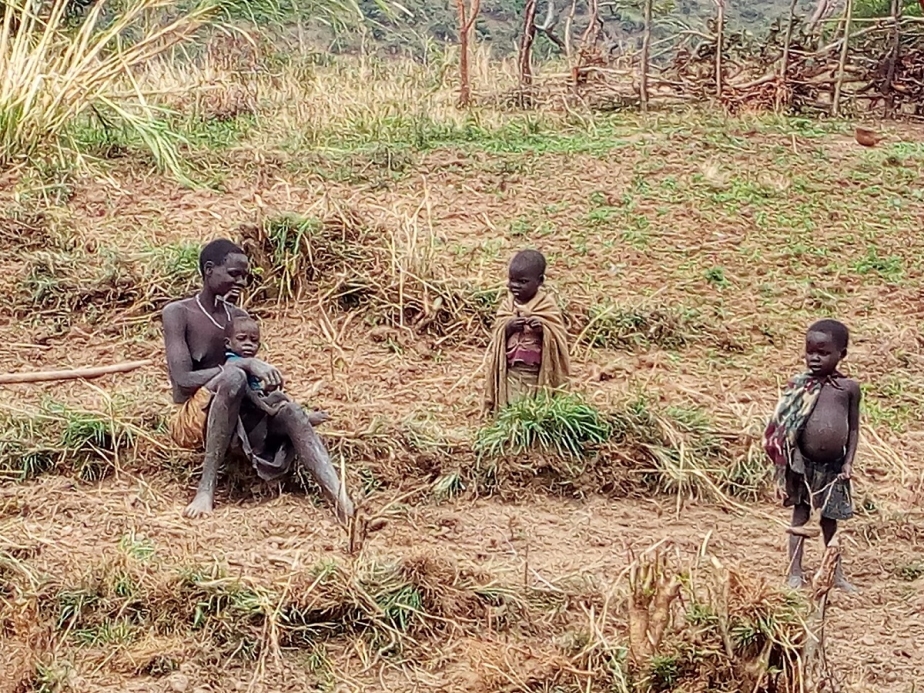
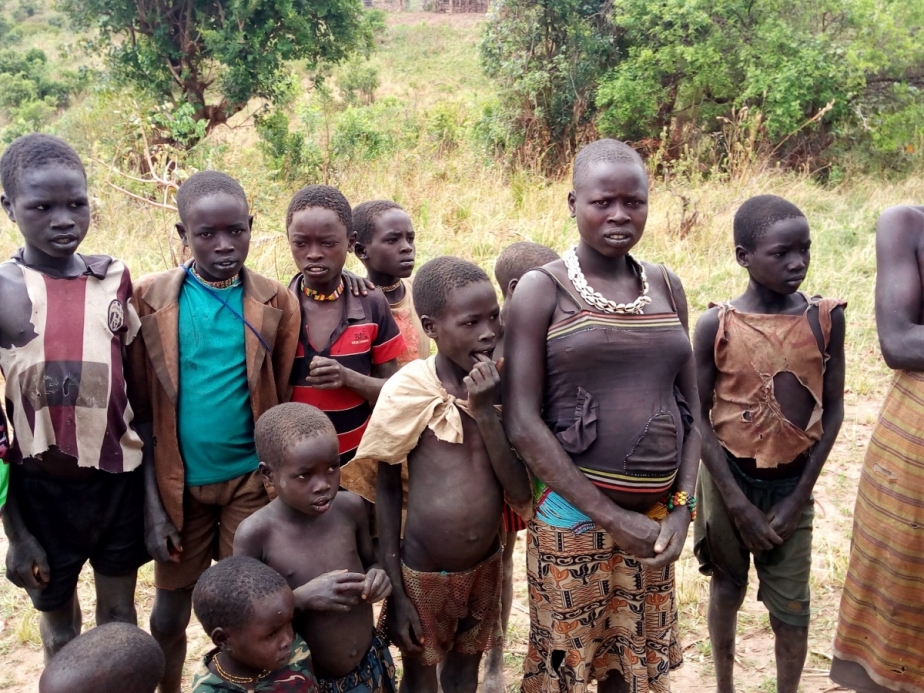

Add new comment